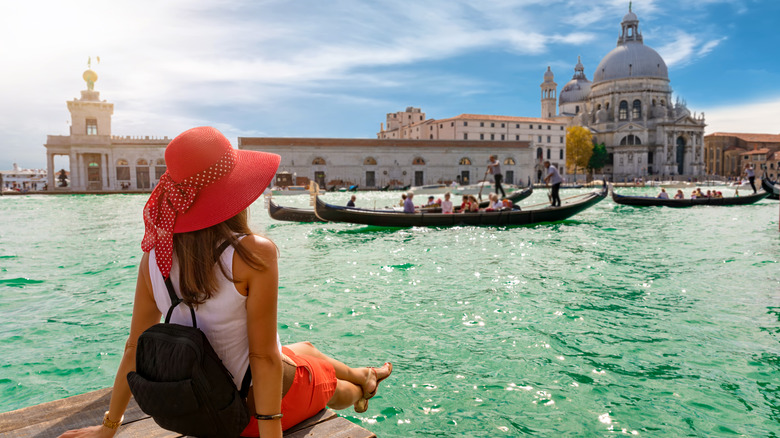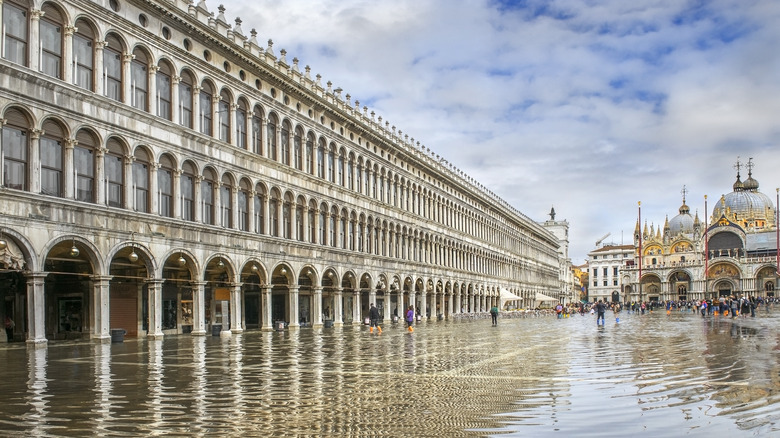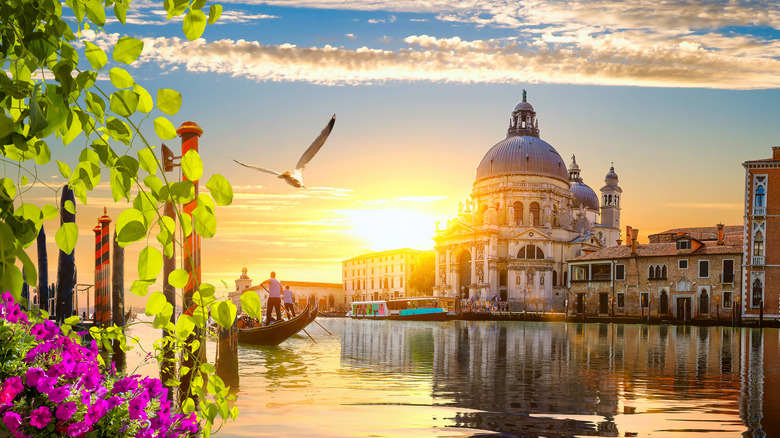Destinations Europe
Margherita Marullo
The Floating City, The City of Bridges, La Serenissima: Venice, Italy is known by so many alluring names, and is one of the most captivating and visited destinations in the world. Its origination and history are as old as time itself. As of 2022, the capital of Veneto, which is made up of over 100 islands, is just over 1,600 years old, according to Introducing Venice. From the enchanting Grand Canal to the detailed Byzantine mosaics found in St. Mark’s Square, it’s no wonder millions of tourists flock to this romantic area of Italy each year to partake in its extreme beauty, intriguing history, and this elegant, mesmerizing, floating city on water lined with hand-carved gondolas as far as the eye can see.
And, while the ever-popular tourist attraction Carnevale di Venezia is held annually during the frigid, winter month of February, visiting this UNESCO World Heritage Site during the recommended spring and autumn months — as suggested by Rick Steves — could find you spending more than your budget allows given prices are higher, and tourism is at its peak. So, what about the summer season?
Summer weather in Venice, Italy

Shansche/Getty Images
Venice is located in the northeastern region of Italy, shielded by the Alps — protecting it from the cold northerly wind. It’s also surrounded by the Adriatic Sea and the Venetian Lagoon, making Venice’s sub-continental climate pleasant.
While many popular destinations in Italy such as Tuscany, Rome, and Sicily are uncomfortably hot during the summer months — reaching temperatures in the high 90s and even over 100 degrees Fahrenheit — temperatures in Venice range between the mid-60s in the evening, and low to mid-80s during the day, with average rainfall lower than the spring and autumn months, according to U.S. News & World Report.
And, though the temperature during the day is still warm, it’s much more bearable than inland regions of Italy during the summer months. That being said, climate change has had an enormous effect on temperatures globally, and Venice is not immune to its wrath: High humidity, severe thunderstorms, strong winds, and temperatures exceeding the recorded average have been known to occur during the months of July and August.
The Aqua Alta months

Irisphoto2/Getty Images
Annually in Venice, the natural, tidal phenomenon known as “Acqua Alta” in Venice occurs in the late autumn and early winter months, as reported by The New York Times, and can cause quite the damper on your holiday plans should you be vacationing in the City of Canals during its arrival. Sea levels can rise up to 200 cm without warning for several hours per day, flooding everything within its path, leaving locals and tourists stranded and perplexed. Ironically, on the other end of the spectrum, during the months of December and January, Venice can also experience what is known as “Acqua Bassa” which is an extreme, low tide scenario, according to Venezia Autentica.
Since summer provides less rainfall and the water levels of the canals are at their normal height, visitors don’t run the risk of having flood waters ruining their vacation plans. However, if you’re intrigued by the annual high water occurrence, but prefer to not experience it in person, there is quite a unique bookstore located along the canals of Venice, that has succumbed to the flooding marvel for many years, and thought of a clever way to protect its books: By storing them in gondolas, bathtubs, and boats instead of bookshelves. So, should you decide to visit Venice during the summer months, when the weather is quite intoxicating, make your way to the Libreria Acqua Alta (High Water Library), and partake in its ironic tribute to the Acqua Alta while the lagoon levels are normal, and the temps are warm. You won’t be disappointed.

